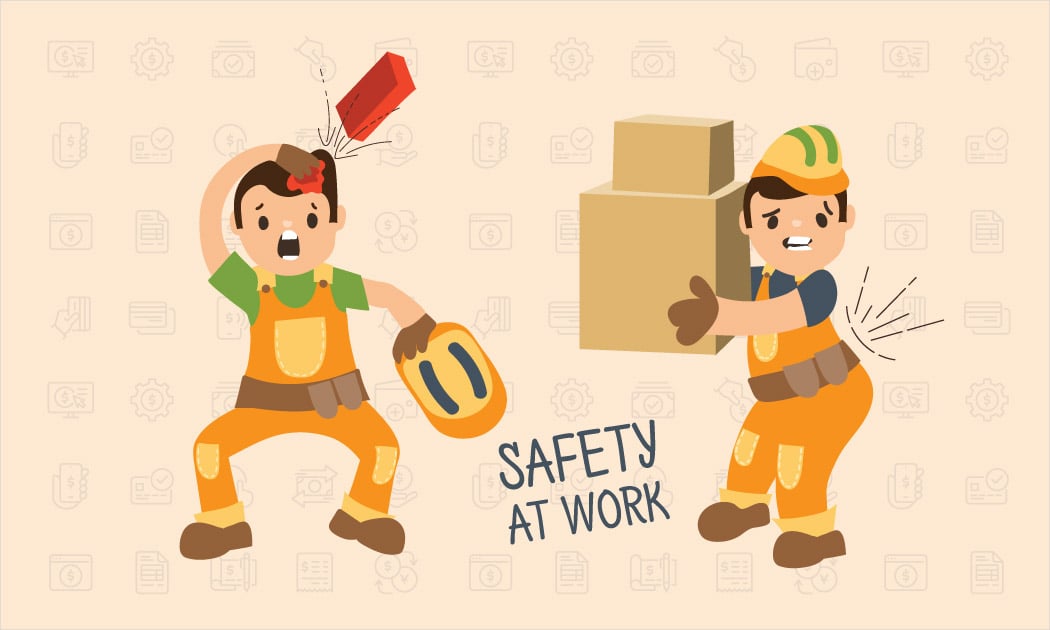The Payroll Blog
News, tips, and advice for small business owners
- Home
- Resources
- Payroll Blog
- How Can Small Businesses Respond to the Coronavirus?
How Can Small Businesses Respond to the Coronavirus?
The recent spread of the coronavirus 2019 (also referred to as COVID-19, the disease it causes) has become a worldwide concern.

As global medical officials work to contain the disease, preparedness is key. Large and small employers across the U.S. may have to adjust work and sick-leave policies, consider the implementation of their infectious disease outbreak plan and/or business continuity plan, or develop one if they don’t have an existing plan in place.
How can small businesses respond to the coronavirus?
First, know the facts. It’s important to find and refer to authoritative sources to help you understand the facts around coronavirus.
The U.S. Centers for Disease Control and Prevention (CDC), for example, published "Interim Guidance for Businesses and Employers" that will likely be updated as more data becomes available. This may be a useful starting point for employers and individuals.
Also, the Society for Human Resource Management (SHRM) has compiled a useful guide on coronavirus information and FAQs.
With the understanding that the global, as well as national, state, and local situations, are fluid, and circumstances can change quickly, employers should continue to reference reliable sources of information regularly.
Develop or evaluate your Business Continuity Plan (BCP)
The coronavirus outbreak is only the latest threat to warrant the implementation of a business continuity plan (BCP) in your workplace. And, if you don’t have one, it’s not too late to sketch one out for your company.
Documenting steps to follow in the event of a disruption due to coronavirus (or natural disaster, loss of power, large-scale cybercrime, etc.) can be the key to your company's long-term survival. A BCP involves identifying potential disastrous events that may affect your company and assembling a list of procedures that detail how to respond to, operate during and recover from these specific threats.
Though business continuity plans may appear complex and time-consuming, even a basic set of policies and procedures can be useful. Both large and small companies can be impacted by business interruptions, but smaller companies may not have the necessary financial resources to quickly recover after a period of downtime.
Leaders and all other employees should be informed of the details of your BCP and/or infectious disease outbreak plan. Depending on your business, customers should also be informed of the impact of your BCP plan on service.
For employees:
- Inform them about their roles and give them the opportunity to practice business continuity procedures.
- Document the intended methods of communication in the event of an emergency — via text message, phone, or email. Written instructions included in a small business continuity plan should categorize additional job responsibilities.
Policies and procedures can help guide employees until conditions return to a business-as-usual environment.
People may be concerned about infectious disease control both in and out of the workplace. As an employer, you can take appropriate preventative actions – obtaining and continuing to stay informed of the facts, reviewing company policies including sick-leave policies, work at home policies and business travel plans, and doing everything possible to promote a safe work environment – to help keep your business thriving during difficult times.
Take this opportunity to check your current policies and procedures and reach out to HR and workplace experts to ensure that you and your business are ready for whatever comes next.
Consider communications and workplace policy changes
Employers can help disseminate information about coronavirus and other infectious diseases to their workforce, again from trusted sources like the CDC. More importantly, employers should be ready to implement strategies that protect their workforce and to make employees aware of actions designed to keep them safe in the workplace.
As part of the information-sharing process, consider providing employees with a detailed explanation of your planned or existing sick-leave policy. During this health crisis, take time to reassess company policies such as sick leave allowances. For example, a current policy may outline a cap on the number of sick days employees are permitted to take, but workers may feel obligated to come in when they’re still ill, even after reaching the limit.
Before making any changes to your policies, you may first want to review employees’ rights to unpaid and paid leave under the FMLA, state and local paid sick leave as well as paid family and medical leave programs. For example, you may have employees who want to self-quarantine to keep themselves away from anyone in the office who may potentially be sick. Can you as an employer cap the number of employees who ask to take time off? The answer will vary depending on the individual state paid sick leave law.
Also, be careful about making any policy decisions that suggest unlawful discrimination against an employee based on their national origin. If you’re uncertain about the requirements that apply to your business, you may want to work with an experienced HR professional.
Another important factor to consider is what you, as an employer, choose to do when any type of illness may be going around the office, including respiratory illness such as the coronavirus. For instance, you may encourage employees to stay home during flu season if they’re showing symptoms. The same goes for you: showing up to work sick while urging others to behave differently can set a poor example and may lead other workers to follow this example.
Evaluate work from home policies
In the wake of coronavirus concerns, companies may consider expanding or adopting a work-from-home or remote working policy for employees, even if it’s on a short-term or temporary basis.
Employers should also consider exempt vs. non-exempt employee status and the potential impact on pay for work-at-home employees.
Assess travel policies
Many companies have decided to curtail or completely suspend business travel. Businesses in general are also re-examining the value of business travel to other locations, due to the continuing spread of this infectious disease. Businesses should continue to monitor travel advisories.
Experts recommend paying close attention to national and international travel advisories, as well as any specific concerns issued by reliable public health authorities. Any recommended or proposed business travel restrictions should be carefully reviewed, and employers should make sure that employees are fully informed about any travel-related risks.
Keep in mind that businesses can’t restrict an employee’s personal travel decisions.
What actions can you take to help maintain a safe and healthy work environment?
Whether it’s the current coronavirus outbreak, flu season, or any other time of year, employers can communicate some general best practices to staff members to ensure a safe, healthy work environment. While obvious, the following actions can help reduce the spread of illnesses:
- Wash hands frequently.
- Avoid close contact with others who are ill.
- Scale back on face-to-face meetings in favor of conference calls.
- Consider requesting that employees bring their own utensils and coffee mugs from home (and taking them home every night to clean before using again).
A minimal investment to keep hand sanitizers, antibacterial soap, and other disinfecting agents on hand can pay dividends by improving employee health. You may also want to encourage employees to focus on cleaning often-used surfaces — their office telephone, computer keyboard and mouse, and other commonly used areas.
For more information, be sure to review OSHA’s guidelines on COVID-19.
Related Blog Posts
View Our Plans and Pricing
Small Business Is Our Business.
This website contains articles posted for informational and educational value. SurePayroll is not responsible for information contained within any of these materials. Any opinions expressed within materials are not necessarily the opinion of, or supported by, SurePayroll. The information in these materials should not be considered legal or accounting advice, and it should not substitute for legal, accounting, and other professional advice where the facts and circumstances warrant. If you require legal or accounting advice or need other professional assistance, you should always consult your licensed attorney, accountant or other tax professional to discuss your particular facts, circumstances and business needs.



